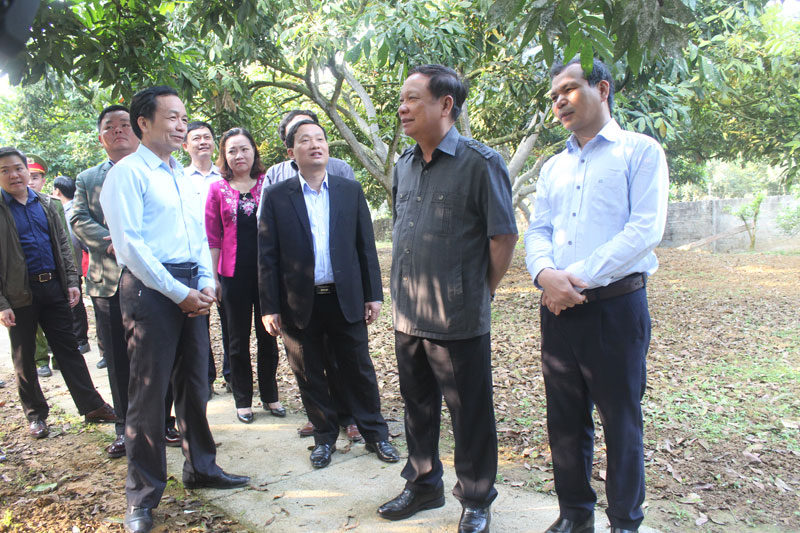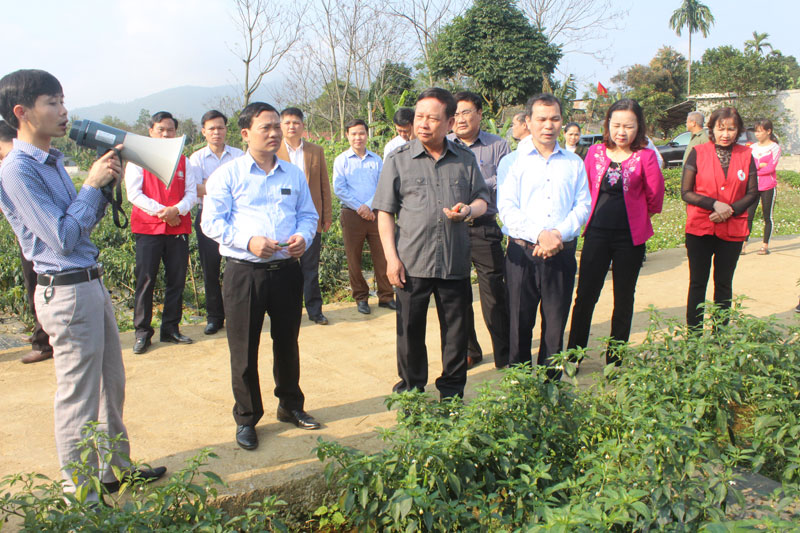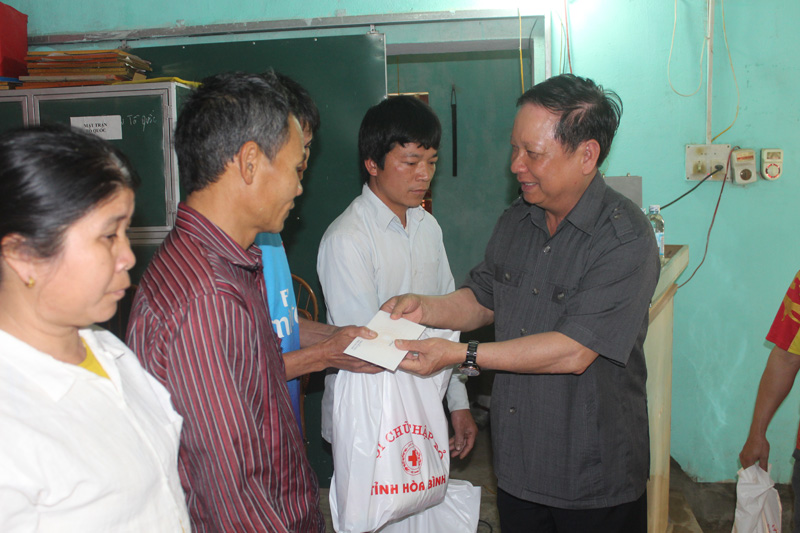
(HBO) – On March 1, Bui Van Tinh, member of the Party Central Committee and Secretary of the Hoa Binh Party Committee, had a working session with the Kim Boi district Party Committee’s Standing Board on local agricultural production, new-style rural building and implementation of resolutions of the provincial Party Committee.

Secretary of the Hoa Binh Party Committee Bui Van Tinh concludes
the working session.
This year, Kim Boi district’s spring crop, which spans over 3,494
ha, has been on schedule, with disease prevention and natural disaster
consequences surmounting prioritised. The district has prepared saplings to
grow 1,000 hectares of forests, and implemented local agricultural
restructuring and development projects. The building of new-style rural areas has
been widely promoted to call for public engagement in infrastructure
construction and production development.

Secretary of the Hoa Binh Party Committee Bui Van Tinh is introduced
to a chilli farming model in Ha Bi commune (Kim Boi district).
Concluding the working session, Tinh stressed a number of
prioritised tasks for the upcoming time, including enhancing leadership of
Party committees and authorities at different levels, overhauling production
based on market demand and increasing added value in agricultural production.
The district should attract investment in agriculture, consider expanding
longan growing areas in Son Thuy, boost technological application in farming,
intensify new-style rural building, and speed up efforts to overcome natural
disaster consequences, among others.

Secretary of the Hoa Binh Party Committee Bui Van Tinh presents 29
gifts worth over 20 million VND to households in Mo Hoac hamlet (Ha Bi commune)
who were affected by floods in October 2017.
The provincial Party leader studied farming situation in Son Thuy
and Ha Bi communes as well as inspected the implementation of a resettlement
area project. He also visited and presented 29 gifts worth over 20 million VND
to households in Mo Hoac hamlet (Ha Bi) who were affected by floods in October
2017./.
Hoa Binh province is undergoing a dynamic transformation amid Vietnam’s national digital transition. Building on Poliburo’s Resolution No. 57-NQ/TW on breakthroughs in science, technology, innovation, and national digital transformation, the province has rolled out a wide range of practical action plans. A standout initiative is the "Digital Literacy for All” movement, an effort to ensure that no one is left behind in the digital era.
Hoa Binh province is undergoing a dynamic transformation in the wake of the national digital transformation movement. Building on Resolution No. 57-NQ/TW of the Politburo on breakthroughs in science, technology, innovation, and national digital transformation, the province has implemented a wide range of practical action plans. A standout initiative is the "Digital Literacy for All” movement ambitious effort to ensure that no one is left behind in the digital age.
With a spirit of unity and proactive problem-solving, the Party Committee, the government and the people of Dong Lai Commune (Tan Lac District) have made great strides in implementing the resolutions of the 24th Party Congress of the commune for the 2020 - 2025 term. Focusing on leadership and practical actions, the commune has brought the Party’s resolutions into daily life, creating strong impacts and pushing the local development forward.
Amid the nationwide push for digital transformation, young people in Hoa Binh Province are stepping up as dynamic pioneers, applying technology to enhance Youth Union operations and expand the reach of youth-led initiatives. Through creativity and adaptability, Youth Union organizations at all levels have introduced a series of practical solutions, contributing to modern governance and community development.
In recent years, An Nghia commune, located in Lac Son district, has stepped up administrative reform, focusing on improving the quality and efficiency of its single-window service unit for receiving and processing administrative procedures. These improvements have helped create favourable conditions for local residents and organisations to handle administrative procedures, contributing to the commune’s broader socio-economic development.
The Prime Minister-approved master plan to develop the multi-use value of forests ecosystems through 2030, with a vision to 2050, aims to improve the management and sustainable use of forest resources, create jobs, increase incomes, and improve the living standards of ethnic minorities, people in mountainous and remote areas, forest workers and those living near forests.





